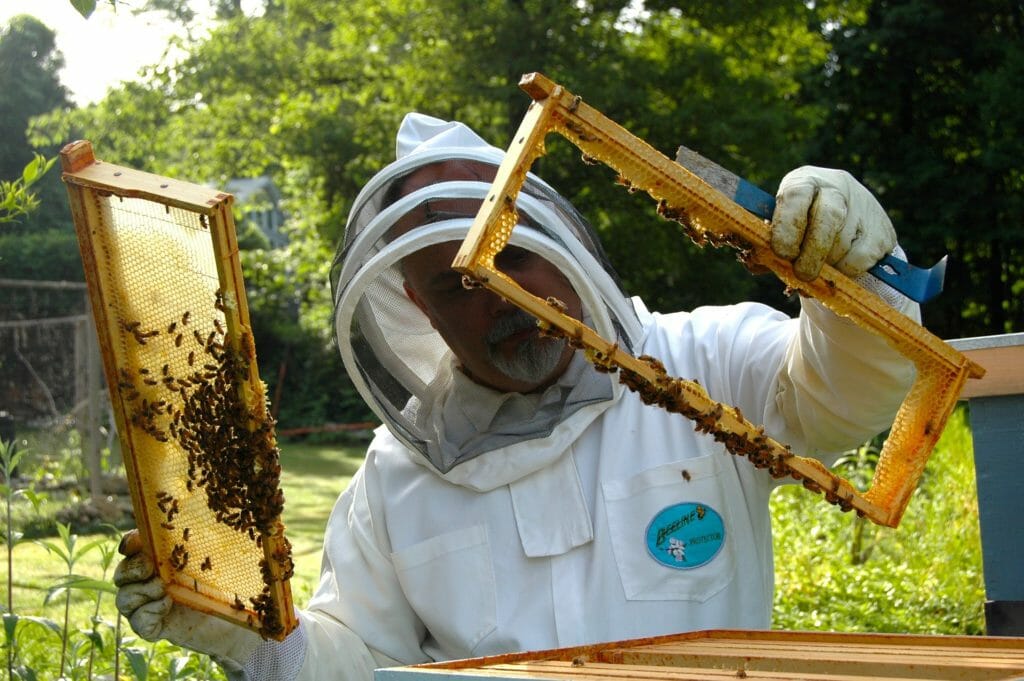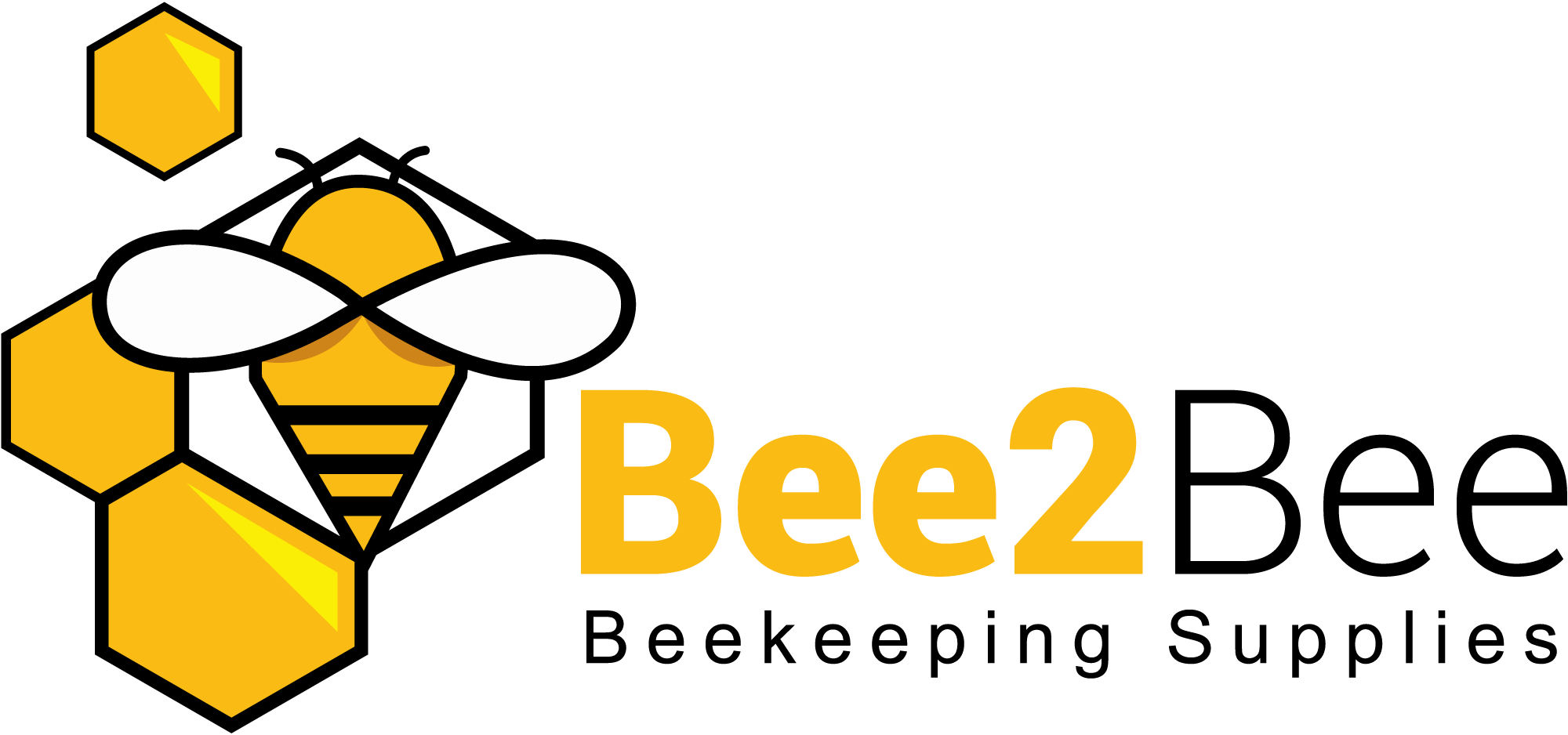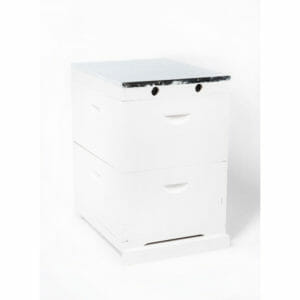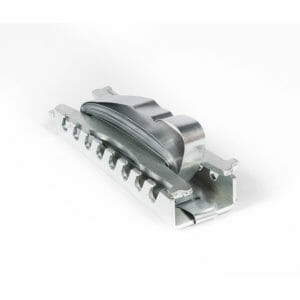Want to be a beekeeper? Learn about the needs and responsibility of a-well managed beehive first.
Yesterday we addressed the legalities of beekeeping in Australia. Of course, this is one of the first things to check for your area if you are an aspiring apiarist. Next, you should be undertaking some research and/or training, with some key considerations in mind.
As Farmstyle.com.au notes, “one of the advantages of bees over other animals is that they do not require as much looking after.” It’s true, bees feed themselves and do not need to be rounded up and shut in at night. Beehives can be left alone for weeks on end depending on the time of year. But this does not mean there isn’t significant work and responsibilities involved.
Below we’ve listed some key questions, both practical and personal, that you should consider as you start learning about beekeeping and the responsibilities of a good beekeeper.
1. How much will it cost to keep a beehive?
You probably expect that there is a bit of set-up cost involved when you begin beekeeping. But be aware that you will need to replace or add new equipment over time. Prepare for occasional unexpected costs, not to mention buying new supers to expand your hive as a colony grows.
A good basic shopping list for the beginner would include:
- A beehive including two supers, base and lid
- 8 or 10 frames (depending on hive size) per super, with foundations (wax or waxed plastic)
- An spare super per hive, ready for expansions
- 1 smoker
- 1 hive tool
- 1 queen excluder per hive
- 1 bee suit with hat/veil per person
- 1 pair of gloves per person
If you have room for more hives you will need to buy this list again so that you have a new home for any swarms that attempt to leave. Gloves and bee suits will also need replacing with time.
As your beekeeping workload increases you may then find that you need other tools. Not to mention the equipment required once you are ready to harvest and bottle your honey!
2. How much time can you give to keeping a beehive?
Consider your other commitments and how these will interact with your annual beekeeping schedule.
The frequency with which you need to check and tend to you hive varies throughout the year. Beekeepers check hives mostly frequent in spring, when you will need to watch out for swarming behaviour. In summer honey production will peak, which usually means the added workload of harvesting and bottling honey.
To get an idea, refer to this calendar posted by Amazing Bees for the Australian beekeeping year.
3. Will you be motivated and committed to the work required, particularly during the busiest seasons?
It’s true that you can at times leave your hive alone for weeks on end, but you need also commit to upping the anti when it’s required. You may be inundated with excess honey to extract and bottle over the summer. Even in winter, the quietest time for bees, you may need to perform some maintenance on the hives.
Also remember that your bees are livestock and, and like the dairy farmer with his cows, their health and well being is your responsibility. You need to be prepared to make this a priority, and your beekeeping practices will need to reflect this.
4. Do you have patience, perseverance and are you willing to learn continuously?
Hives can take few years to yield honey. You may experience the disappointment of absconding bees (where the entire colony abandons the hive) or other colony losses.
You need to be in it for the long game. Pushing through and learning from experience will make you a better beekeeper in the longer term.
You should keep up to date with research and changes to best practices, and be open to learning new ways of doing things when it proves beneficial. A subscription to Australasian Beekeeper Magazine is a worthwhile investment. You should also be part of a local beekeeping association or group in your area.
5. Do you have the right attitude to bees? Think respect, responsibility, curiosity and care.
We’ve already touched on the responsibility a beekeeper has to the health of his bees. But a beekeeper needs to respect and understand bees as well.
New beekeepers need to learn how to handle bees and shouldn’t fear them. You firstly need to understand that bees are defensive creatures. An “aggressive” bee is simply a more defensive bee than others. Undisturbed, bees are gentle creatures.
You will also need to get to know your own colony(s). You can approach some hives without protection, while others can be more cranky when disturbed.
As Amazing Bee also notes:
- Bees are adaptable: Our interactions with bees can either help or work against them. Bees survive despite this.
- Remember the key difference between bees and humans: Bees are trying to adapt to the environment. We humans are trying to change our environment to suit us.
- Bees are wild animals: Though bees are considered livestock, they are not truly domesticated, there are no pet bees.
- Bees do not depend on us: Bees can live in the wild without us. Our existence, however, depends on bees! (Who will leave behind a poorly managed hive when they see fit!)
As you learn about your bees and watch them hard at work, they will earn your respect regardless. But it’s best to to start off on the right foot with your new colony. Learn as much about these amazing creatures as you can first, and be prepared to handle with patience and care – not fear or hostility.
Related:
Beginner Beekeeping: What are the Legal Requirements for Beekeeping in Your Area?
The Truth About Aggressive Honey Bees

Visit the Bee2Bee online shop for beekeeping equipment and supplies.




